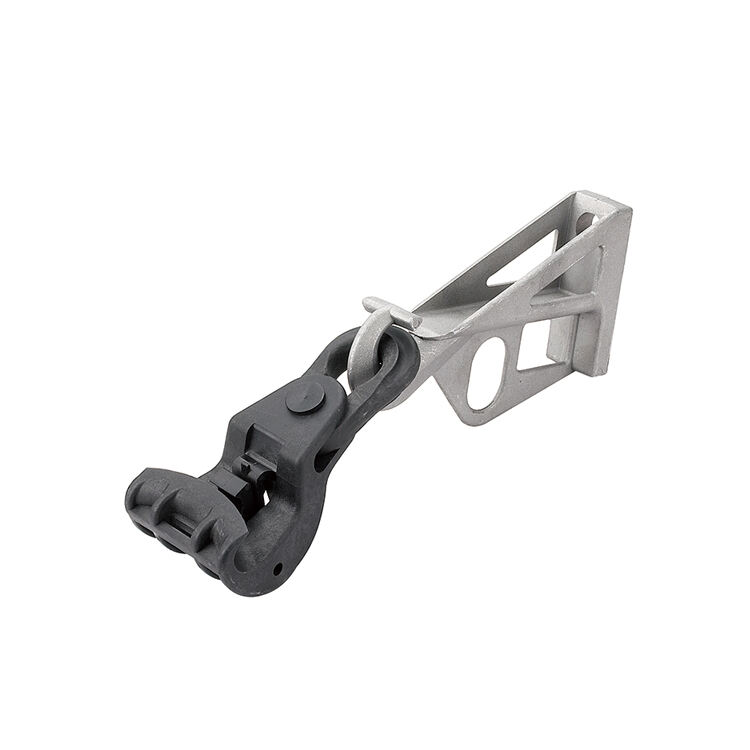For overhead power lines and cable installations, suspension clamps are integral to infrastructure projects. These are basic components that help in creating a safeguard for the cables and securing them from environmental conditions. Hence, choosing the right suspension clamp supplier is an important decision that should not be taken lightly since it affects the safety-intensity-efficacy-warranty of your project. This post does a deep dive in to each aspect that you should take into account while evaluating potential suppliers.
What to Consider When Choosing the Supplier
The first and the most important thing that you need to keep in mind when deciding on a suspension clamp supplier is if the products they are offering for sale, of high quality. You need to find a supplier that utilises the best materials like but better than those standards such as ASTM or IEC. Furthermore, their goods should ideally have a history of lasting longer than the competition while performing better under even more types of conditions so they work effectively as you need them for your project.
A second very critical point to consider is the technical skills of that supplier. The supplier needs to know more than just how the product works, they need be able to give advice on what it can work with in terms of installation or maintenance. Because this way, they will be able to help you technically if and when the need arises - which would lead your project towards success.
The Quality of The Clamps
The manufacturer of each suspension clamps that you acquire matters significantly as it will determine quality which differs with the type being sold on the market. A good supplier will have a strong system to maintain the quality of their product thanks to ISO certifications. When applicable, try to be present at their facilities or inquire about third-party audits of how they manufacture. They must also comply with environmental and safety regulations when producing their products in order to keep integrityicides.
How to Select Proper Clamps For Your Project
In order to secure this kind of heavy load, the suspension clamp supplier you choose must be able to meet these special needs. The type of cable being used, the potential environment that could affect clamps (weather resistance), the need for strength based on load requirements and ease or difficulty in installing a clamp should all be considered. Review the supplier's product line to see whether they have tailored solutions that fit your requirements. Finally, feel free to ask for samples in order to test if the products are suitable or not for your project.
How to Select a Trusted Supplier
The trust is a key factor in any business relation, therefore the selection of suspension clamp supplier must been proven and tested by successful case studies and positive feedback from buyers. Openness about their business activities, clear lines of communication and offering after-sales care all point to a reputable supplier. Even more important is their economic health: that way, you know they can fill big orders and provide years of support to the project.
Why a Good Supplier is Key
Picking a reliable suspension clamp supplier is about much more than just getting the best parts - it's an important and essential aspect of your project. A good supplier in stock will help reduce delays, and its products arrive more quickly to keep downtime for failure shorter by promptly presenting solutions when necessary. They can provide advice on how to optimise designs for both project efficiencies and possible costs savings through value engineering.
In addition, developing a relationship with your supplier means they can pass on new technologies and products that will allow you to produce advancements in the industry itself. This collaboration can result in numerous strategic benefits (for example friendly rates, priority service and joint problem solving skills).
Finally, the best suspension clamp supplier will take a variety of aspects into account from manufacturing standards and technical knowledge to quality assurance factors in terms of their flexibility to meet your unique needs and ability for building trust. Carefully measuring your partners, with a focus on those who deliver in these contexts can be the beginning of an enduring project.

 EN
EN
 AR
AR
 BG
BG
 HR
HR
 CS
CS
 DA
DA
 NL
NL
 FI
FI
 FR
FR
 DE
DE
 EL
EL
 HI
HI
 IT
IT
 JA
JA
 KO
KO
 NO
NO
 PL
PL
 PT
PT
 RO
RO
 RU
RU
 ES
ES
 SV
SV
 CA
CA
 TL
TL
 IW
IW
 ID
ID
 LV
LV
 LT
LT
 SR
SR
 SK
SK
 SL
SL
 UK
UK
 VI
VI
 SQ
SQ
 ET
ET
 GL
GL
 HU
HU
 MT
MT
 TH
TH
 TR
TR


